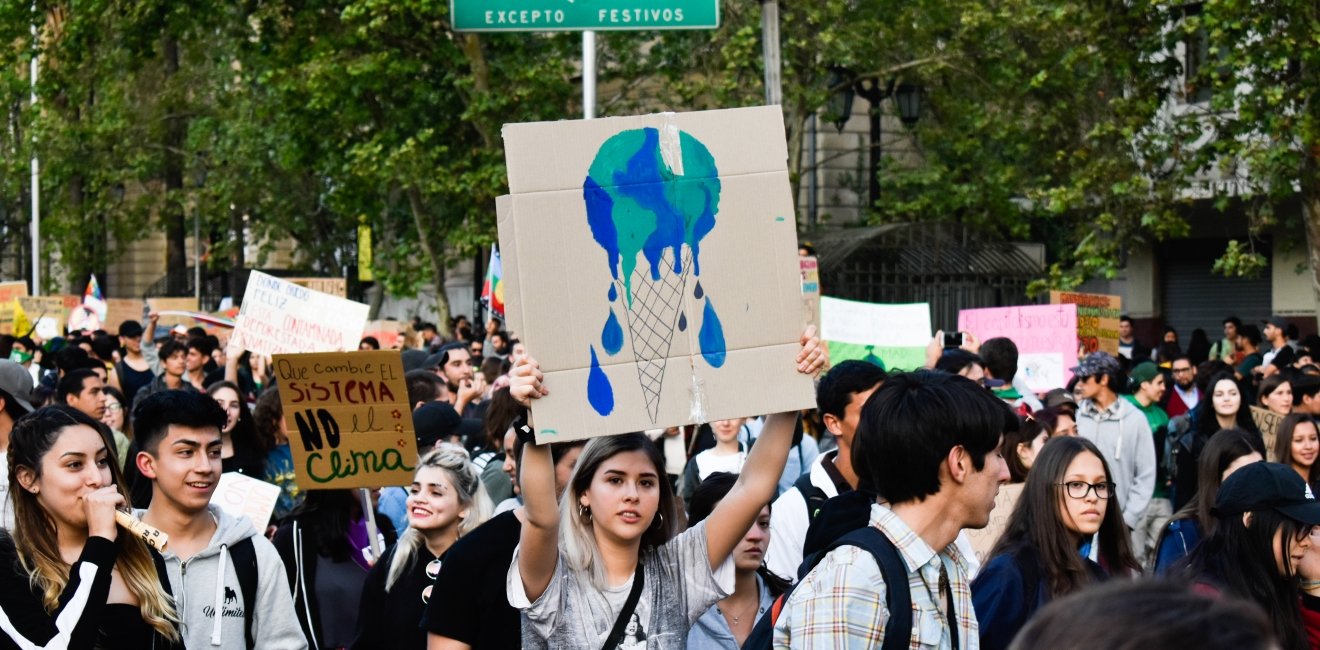
A blog of the Latin America Program
Q: Early in the COVID-19 pandemic, in April 2020, you participated in a Wilson Center Latin American Program seminar on the 50th anniversary of Earth Day to discuss global cooperation on environmental protection. A lot has happened since then, including your nomination as Chile’s next environmental minister by President-elect Gabriel Boric. At our Wilson Center dialogue, you spoke about the importance of effectively communicating scientific findings. What will be your communications strategy as Chile’s environmental minister, both for domestic and international audiences? In particular, how will you address growing anxiety and pessimism regarding the climate crisis, including among young Chileans who were inspired by Boric’s presidential campaign?
A: Something very important that happened last year was the publishing of the Working Group I report of the UN Intergovernmental Panel on Climate Change (IPCC). In recent years, the IPCC has paid a lot more attention to communicating its findings in a very clear and simple, yet also engaging, way. There are very clear messages, and that report, which I was involved in writing and disseminating, helped me to communicate more effectively. We should make no mistake about the gravity of the situation. But young people in Chile and elsewhere must understand that there are solutions still available. We must pursue these solutions, and we must act this decade. In that sense, the formal announcement of my post in President-elect Boric’s cabinet is a clear example of bridging scientific research and policymaking.
In my career as a scientist, I have studied and seen firsthand the evidence of climate change. My appointment as Chile’s environmental minister sends a clear signal that we can cross these lines, and go from examining the evidence to considering steps for decision-making in government. It is my hope that this can be a powerful example, domestically and internationally, of merging scientific knowledge and policymaking, and that it encourages other countries to ramp up their climate ambitions and begin urgently implementing changes within this decade to address the climate crisis.
Q: Chile has been a global climate leader under governments of various political stripes. For example, Chile led the 2019 Conference of Parties (COP) 25 process, and it has set an example through its ambitious renewable energy targets, its adoption of electric buses and its production of minerals critical to renewable energy technologies, including copper and lithium. How will you maintain Chile’s global leadership on climate and conservation issues?
A: Indeed, climate action has been a focus of governments in Chile across political parties. That is very important to note. There is significant agreement in Chile on the climate crisis, and you do not need to spend a lot of energy to convince others that this is important. That really gives my job the foundation to be effective. You asked about how Chile can maintain its leadership role and what the United States can do, and they are in some ways related. There is a principle in the UN Framework Convention on Climate Change concerning “common but differentiated responsibilities” and countries’ respective capabilities. Sometimes these principles are interpreted as simply assuming that developing nations have more time to implement certain actions. In my view, if developing nations pursue a pathway of development that does not take the current crisis into account, it will only exacerbate our problems. We should actually put it the other way around.
Climate action can only be successful and just if developing countries that are the furthest behind and most impoverished catch up on green development and deploy and adopt renewable energy and other technologies. For that, we need help. The developed world and wealthy nations in particular need to help with financing, of course, as well as capacity building. Both of these aspects are included in the global climate change agenda. However, I would like to convince others that it is within our global collective interests for developing nations to be the first to transition. It is important to raise our ambitions and push for rapid technological leapfrogging. In the case of Chile, this is much easier than in other countries. Chileans know all too well that we do not have readily available supplies of domestic fossil fuels. For many years, this was a major problem, creating significant levels of energy insecurity for our country. It was expensive to pay your electricity bill, and still is in many parts of Chile, due to our reliance on imported fuel. Yet at the same time, this challenge allowed renewable energy technologies to develop much faster than in many other countries. Of course, for many countries it may seem too difficult to leave fossil fuels in the ground, especially considering today’s high commodity prices. However, we must convince all countries, especially developing nations, that they should not pursue such strategies. In the end, it does not make sense to pursue the dirty development approaches of the 20th century, but rather, we should all pursue development that is climate resilient and carbon neutral. That is something that I would truly like to see happen as quickly as possible.
Q: The Biden administration has said addressing the climate crisis is a foreign policy priority for the United States. How should the United States, other wealthy countries and multilateral institutions best support countries such as Chile that are committed to environmental protection but need greater resources to promote a rapid energy transition and to reduce biodiversity loss and deforestation? Beyond financial support, is there a role for the United States in addressing other hemispheric environmental challenges, such as overfishing?
A: There is a very important role for the United States in financing concrete actions that address the climate crisis. I am eager to see the Biden administration’s focus on the climate crisis as a foreign policy priority materialize within the U.S. relationship with Latin America and the Caribbean.
Something that was a very positive development last year at COP 26 was that the United States, for the first time I believe, committed to finance climate adaptation. We know from the most recent IPCC report published this week that many climate impacts, including loss and damage, have already occurred. We really need to adapt to climate change, without lessening our efforts at mitigation, in both developing and developed nations. We need to do more on adaptation, and the Biden administration can support important climate finance mechanisms. At the end of the day, what we all want to build is a resilient society. A resilient society requires both mitigation and adaptation. For that, developed countries such as the United States can finance adaptation and effective capacity building. There is also increasingly a growing understanding globally that the climate crisis and the biodiversity crisis are interlinked. We must focus on this as well. It is not just about burning fossil fuels. It is, across the board, how humanity has dealt with nature. The destruction of nature is at the heart of the crisis we are living in. Tackling environmental challenges requires greater commitment from all, and most importantly, global cooperation on efforts that lead to real results.
Author


Latin America Program
The Wilson Center’s prestigious Latin America Program provides non-partisan expertise to a broad community of decision makers in the United States and Latin America on critical policy issues facing the Hemisphere. The Program provides insightful and actionable research for policymakers, private sector leaders, journalists, and public intellectuals in the United States and Latin America. To bridge the gap between scholarship and policy action, it fosters new inquiry, sponsors high-level public and private meetings among multiple stakeholders, and explores policy options to improve outcomes for citizens throughout the Americas. Drawing on the Wilson Center’s strength as the nation’s key non-partisan policy forum, the Program serves as a trusted source of analysis and a vital point of contact between the worlds of scholarship and action. Read more

Explore More in Weekly Asado
Browse Weekly Asado
Dengue Haunts South America’s Summers

Lessons from Costa Rica’s Economic Transformation

Women and Latin America’s Digital Revolution

